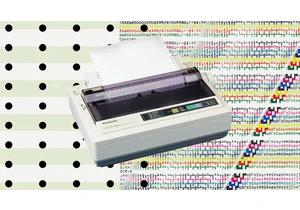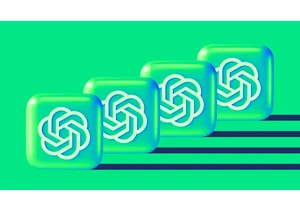Superhuman is a fast, pricey email service aimed at those whose work inboxes are exploding. People pay $30 a month for it, CEO Rahul Vohra says, because it’s as important for their work as any other core company software.
The universality of email stress—workers spend more than two hours a day on it—has helped the company raise more than $100 million from the likes of Ashton Kutcher, Will Smith, Arianna Huffington, and Dropbox CEO Drew Houston.
Now Superhuman is racing to apply artificial intelligence to inbox efficiency. So far, the software summarizes email threads, suggests replies, and drafts emails based on your prompts. Fast Company spoke with Vohra about the next phase of the AI race and how Superhuman justifies its $30-per-month price tag. The conversation has been edited for length and clarity.
What AI capabilities are you working on next?
We’re building our own predictive autocomplete, trained on the messages you’ve actually sent. Expect Superhuman to take into account your own voice and tone and the nuance of how you respond to particular people. We’re also looking at multiple ways to make calendaring and scheduling easier with AI. About 30% to 40% of all emails have to do with scheduling, depending on your role. And we’re looking at semantic search so you can ask questions of your inbox.
How will you keep up with the AI competition?
To give you some context on the magnitude of emails we’re processing here, since we launched auto summarize we’ve processed north of 4 billion emails. To put that number into perspective, most LLMs are trained on the Enron corpus of emails, which is about 500,000 to 600,000 emails, depending on how you count it. And we’re already looking at over 4 billion emails to help our users get through that day.
But I think where all of this is leading to is “Agentic AI.” With an agent AI you can give it a goal, as opposed to a task. It can break goals down autonomously into subtasks and then work on those subtasks in parallel or in serial.
It can resolve ambiguity by asking you questions or by interrogating other systems by going out to the web to do some research or even looking at internal APIs or communicating with other AI agents that you have.
You can imagine an AI agent triaging your inbox on your behalf. So you wake up to an inbox fully triaged. You can imagine an AI agent scheduling on your behalf, even drafting and then sending emails on your behalf. All of those things are coming in the future.
How do companies justify spending $30 per person on email?
Superhuman is designed for work email. We’re not about consumer email. That’s why it costs what it does and why it has the features it does. Whenever we onboard a new company, we compare the 30 days for each user prior to using Superhuman to the 30 days for each user after using Superhuman. In any given period of time, users are sending twice as many emails, meaning they’re moving twice as fast. And they’re responding to emails one to two business days faster in addition to saving four hours or more every single week.
Is more email always better? Is twice the amount of email within a company actually a good thing?
I think it really depends on your role. If you’re a salesperson, a customer success person, a recruiter, or anyone who deals with the outside world for most of what you do, there is an infinite amount of stuff to be done and it’s really a question of how much you can get through in one given day.
What about multimedia email? Do you envision people sending more video and audio messages within email, or is text sufficient?
I love recording Loom videos. I find as a receiver of them, they make a nice break in the cadence of the day, because you can go from reading a lot of things to watching things. And you get to do so at a really fast speed. I typically set mine to 2x. That and YouTube makes me wish normal meetings could go at 2x speed.
So it’s something I think about a lot. Ultimately, our mission is to help professionals end every day feeling happier, more productive, and closer to achieving their potential. So I can see a world where one day we are enabling people to send and receive video messages.
But that’s a long way away. Before we get there, I’m very bullish on voice itself as an input mechanism. I’ve been using this app that’s really great called Super Whisper, and it’s built on Open AI’s Whisper technology. It lets me dictate in near real time into all my Mac apps. The technology has gotten so good that in a year or two we’ll be able to actually drive apps with just our voice.
So in Superhuman you can imagine not touching the keyboard, just saying “archive . . . archive . . . snooze that till tomorrow . . . snooze that till Monday . . . reply . . . write an email with AI saying that we can schedule this meeting for Friday . . .” and so on. And you’re able to whip through your inbox without ever touching the keyboard. That’s going to feel remarkable.
How do you set up your own inbox, and how do you cope with notifications and email overload?
I have a Split Inbox for Notion [notifications]. I have one for Figma, Google Docs, and for Linear or whatever other tools we’re using. I create a split for those so I can stay on top of all those notifications before I get to the rest of my email because for me, unblocking the team is actually one of the most important things I do. That’s true for any leader or manager. Unblocking your team is the most important thing you can do.
Login to add comment
Other posts in this group

Excerpted from The Chinese Computer: A Global History of the Information Age, by Thomas S. Mullaney. Published by The MIT Press. Copyright © 2024 MIT. All rights reserved.

Smartphone cameras have significantly improved in recent years. Computational photography and AI allow these devices to capture stunning images that can surpass what we see with the naked eye. Pho

When journalists sounded alarm bells in early May 2024 that more than 100 extremist militia groups had be

OpenAI’s chatbots scored a big new data source following the company’s deal with News Corp. on We

It seems as though the more powerful computers get, the more noticeable it is once they start to buckle under the pressure of multi-tabbed web sessions, unchecked digital hoarding, many-windowed m


Just nine years after accepting his own sheepskin from Stevens Institute of Technology (SIT), YouTube gadg
